The Issue That Needs More Attention in the Health Care Debate
by Bob Glowacki
 As Chief Executive Officer at Easterseals Southeastern Wisconsin I have the privilege of meeting many people with disabilities and their loved ones. I’ll never forget the day one of our clients, a woman with a spinal cord injury, came to share her own story with our Board of Directors. Janice started her story describing day after day lying in bed in a nursing home, depressed and alone, no hope for the future. But that was before she met her “Easterseals dream team.” With a glowing smile, Janice outlined all the help she received from staff here at Easterseals Southeastern Wisconsin to find services funded by Medicaid. Those Medicaid services helped her see a brighter future.
As Chief Executive Officer at Easterseals Southeastern Wisconsin I have the privilege of meeting many people with disabilities and their loved ones. I’ll never forget the day one of our clients, a woman with a spinal cord injury, came to share her own story with our Board of Directors. Janice started her story describing day after day lying in bed in a nursing home, depressed and alone, no hope for the future. But that was before she met her “Easterseals dream team.” With a glowing smile, Janice outlined all the help she received from staff here at Easterseals Southeastern Wisconsin to find services funded by Medicaid. Those Medicaid services helped her see a brighter future.
The American Health Care Act is garnering a lot of attention lately. Both the Affordable Care Act and the American Health Care Act have amazing reach. Health care is over 15% of our National Gross Domestic Product. Health care is getting more expensive and concerns us all, especially as our population ages. But as the political debate rages and the voices get louder, one issue has received far too little attention.
Medicaid.
When you think of Medicaid, you picture a hospital, right? Doctors and nurses attending to a patient? Well, that’s not what I see.
When I saw Janice at our board meeting, I saw a middle aged woman in a wheelchair that receives personal care in her home, not in a nursing home. I see young people with disabilities moving into their first home away for their parents. I see a young person earning her first paycheck.
Medicaid is all these things. It allows people with disabilities to access their communities, live with greater independence and avoid long stays in nursing homes. Community options like these can be more cost-effective than institutions. All of them provide quality care and build a more inclusive community. All these services rely on Medicaid funding.
Janice is able to live independently again in an apartment where she can be with her family. The smile on Janice’s face as she spoke with our Board of Directors lit up our conference room. Janice is just one of hundreds of thousands of Medicaid success stories of greater independence and better quality of life.
Medicaid many times does not cover the full cost of a person’s care, so organizations like Easterseals rely on donors to bridge the gap. Philanthropy cannot bridge these gaps forever. Further cuts will erode local organizations, and that will lead to cutbacks and reductions in services to people with disabilities who rely on them.
So, if like me, you believe all people should have greater independence and a chance to contribute to our community, join your voices with ours at Easterseals and oppose cuts to Medicaid.
Easterseals also has a list of resources available on how to contact your representatives, including images you can use on social media to #SaveMedicaid.







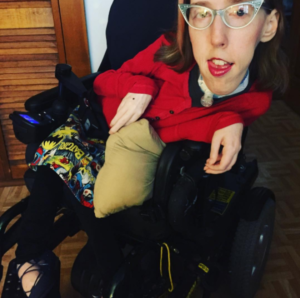
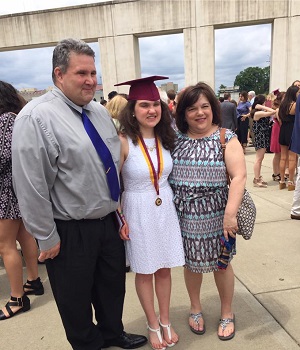
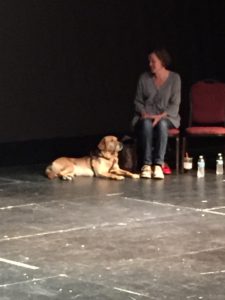
 I am in the midst of planning book readings to promote my new book
I am in the midst of planning book readings to promote my new book  It’s that time of year — friends and family are gathering to celebrate the new graduates in their lives. Some of the Millennials who are graduating — and all graduates from Generation Z — have no concept of life before curb cuts on sidewalks and Braille on elevator buttons. Accessible design is so common now that even older generations hardly remember public buildings that didn’t have wheelchair ramps.
It’s that time of year — friends and family are gathering to celebrate the new graduates in their lives. Some of the Millennials who are graduating — and all graduates from Generation Z — have no concept of life before curb cuts on sidewalks and Braille on elevator buttons. Accessible design is so common now that even older generations hardly remember public buildings that didn’t have wheelchair ramps.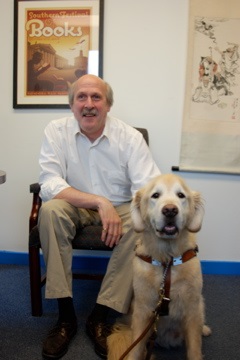
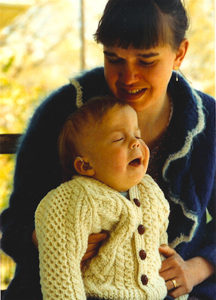
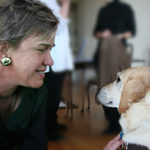
 Choosing a daycare poses challenges for families on many levels. As the parent of a child on the autism spectrum, I had to use a bit of a different approach in seeking the best option for our family. It was not an easy process.
Choosing a daycare poses challenges for families on many levels. As the parent of a child on the autism spectrum, I had to use a bit of a different approach in seeking the best option for our family. It was not an easy process.